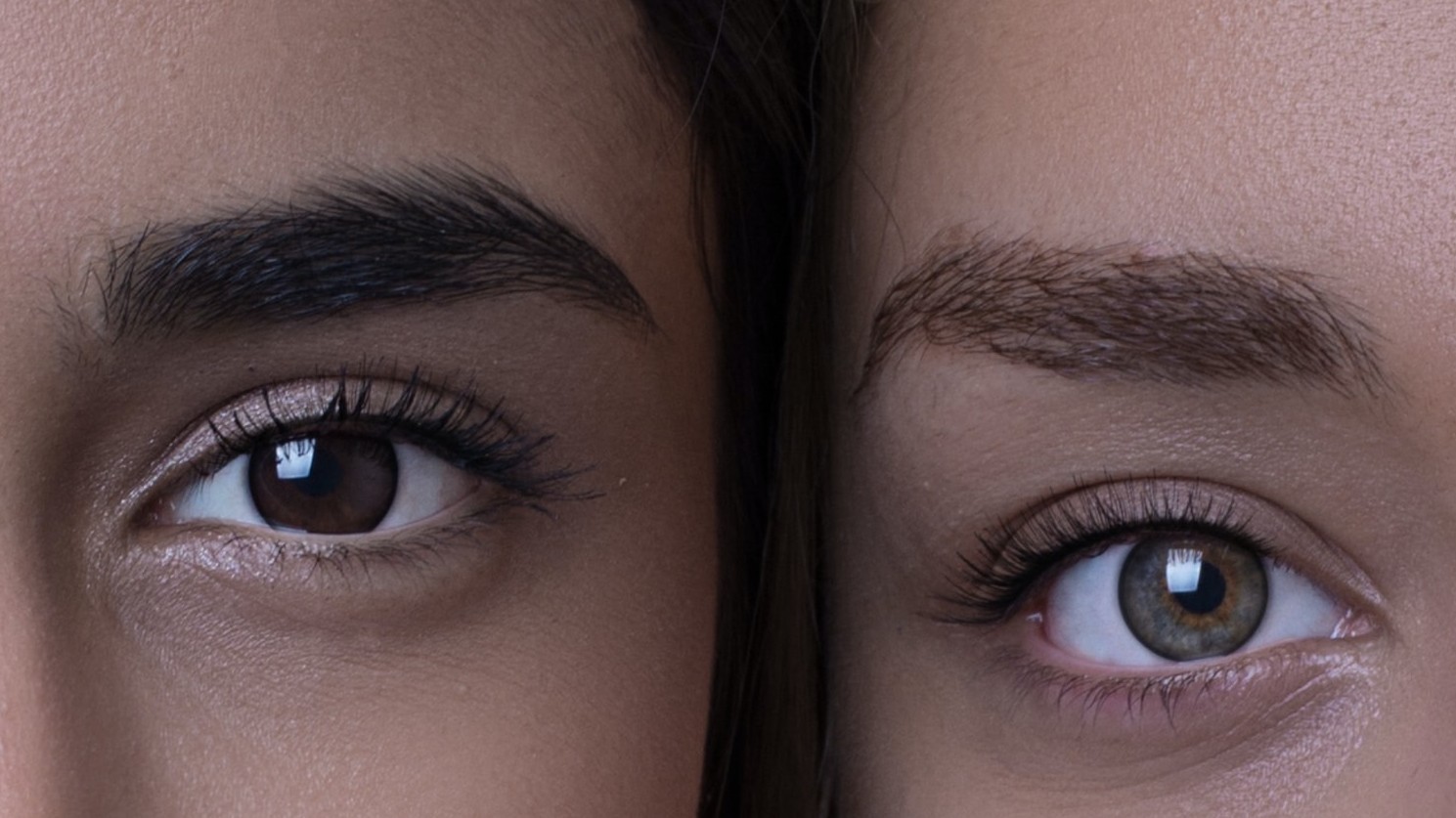Formulate user Jo wrote us with some great questions about permanent makeup:
"Hi there! Okay, so is permanent makeup just a face tattoo? What are the most popular types of it? Seems crazy - is the process the exact same as a face tat or is it different?"
Thanks for writing Jo!
What is permanent makeup?
"Permanent Makeup is a form of cosmetic tattooing that works by gently and strategically layering pigment into your skin, enhancing your natural features and boosting your overall unique beauty. Think of it as having your makeup applied permanently(in the most natural way), but without the hassle of daily touch-ups," says Christy Calafati, permanent makeup artist at The Canyon Salon.
"Who isn't tired of spending precious time every morning to perfect your makeup routine, to even out asymmetrical brows or make your lips look just a bit less corpsy? Permanent Makeup is just beginning to make its way into the mainstream beauty arena."
Is permanent makeup the same as a face tattoo?
Permanent makeup is somewhat similar to getting a tattoo on your face, but more shallowly, and with even more detail.
Marina Sominsky, R.N., Owner of Capital Aesthetics, explains: "While tattooing requires ink to be injected deep into the dermis layer of the skin, permanent makeup application will only go as far as the epidermis- the outermost layer.
Additionally, permanent makeup application requires more precise needles to maintain the accuracy of the hair-like lines for procedures such as microblading and eyeliner."
Permanent makeup is also less painful than a tattoo. "While tattooing is known to be painful, patients who undergo permanent makeup treatments report more mild discomfort than anything," says Marina. "The face does have many sensitive regions, especially around the eyes. Because permanent makeup needles do not penetrate as deep as tattooing does, the reported discomfort is much less severe. For treatments such as microblading, patients rarely report discomfort.
That being said, pain is objective, and different people have different experiences. If needles make you anxious or if you have a low pain tolerance, it might be helpful to bring a friend and/or have your practitioner apply a numbing cream prior to the treatment.
What's the most common form of permanent makeup?
"The most popular procedure is microblading, which is eyebrow enhancement," says Kelly Martinez, paramedical permanent makeup artist and owner of INKredible PMU. "I had my eyebrows microbladed in 2020 and it has been life-changing. I can still wake up feeling great and ready to go out for the day. It has enhanced my face shape and my confidence!"
Microblading is using a blade and ink to make hairlike strokes in the eyebrows. Though microblading is popular, it's not for everyone - this is a procedure that's best done on clients who are in their 20's and have dry skin. Attempting microblading on oily skin can result in unintended consequences:
"Oily skin can cause pigment migration, turning those coveted crispy strokes into color blobs," says Christy. "Not exactly the look we're going for, right?"
Powdered, Ombre, and Nano Brows are other forms of permanent eyebrow enhancement, and work best for more oily skin types.
Why are eyebrow enhancements so popular?
Customers seek out eyebrow enhancements for different reasons. "Usually, people go for brow enhancements as this is one area of the face that many want naturally defined," says Marina. "Those suffering from conditions such as alopecia may have originally had prominent eyebrows but lost them due to their symptoms, so micro blading or nano blading are go-to permanent makeup procedures for this."
How long does permanent makeup last?
Though it's called permanent makeup, this procedure is not actually permanent. Because pigments are applied to the outermost layer of skin, they only stay put for a few years before needing to be touched up.
"Usually, permanent eyeliner can last up to a year, fading over time. Micro blading for eyebrows will last closer to 3-5 months, and touch-ups may be required," says Marina.
If you have oily skin, you might need the procedure re-done more quickly. Excess sebum can cause pigments to migrate within the skin, dulling the sharpness of the lines and causing the makeup to look smudged.
The opposite is true if you have mature skin - because this type of skin has a low rate of cell turnover, the pigments will stay in place for a longer period of time.
Other factors that can influence the longevity of permanent makeup include how much time you spent in the sun, how frequently you exfoliate, if you use topical acne medications, and even how strong a facial cleanser you use.
If you want your permanent makeup to last, you'll also have to closely obey the instructions given to you by your provider - and if you absolutely can't follow them, it's best to be honest. "Can you resist saunas, extreme exercise, and sun exposure for at least 10 days after the procedure? These are crucial questions because they greatly impact your healed results and how long your tattoo will last," says Christy. "You will be provided with specific products and instructions to ensure your Permanent Makeup stays stunning for years to come."
How does the process of getting permanent makeup work?
The application process isn't something that permanent makeup providers take lightly. "Each appointment starts with a series of questions to ensure the best possible outcome," says Christy. "We'll discuss your medical history, current medications, and any skincare products you're using. It's important to avoid retinol, glycolic acid, or salicylic products near the treatment area, as these can affect pigment retention and inhibit the skin's ability to retain the color. Next, we'll consider your skin type, undertones, overtones, and the desired results."
After getting a thorough understanding of your skin's history and your goals for the procedure, pigment colors are chosen and the facial area is mapped. Depending on the provider and the procedure, numbing cream may or may not be applied, and the pigments are implanted with a specialized machine.
But that's just the first appointment - the process likely won't be finished for quite some time. "It is never a guarantee how a person will heal. Most people need two appointments to perfect their permanent makeup," says Kelly. "It takes 6 weeks for all the layers of skin to heal before retouching/perfecting the look can take place."
What happens if you're not happy with the results?
If you don't like how your makeup turned out, your provider will be able to help. And unlike tattoos, correcting work won't require lasers or especially fancy equipment - it involves something that you might even have at home (though you certainly shouldn't try to do this yourself at home.
"Rectifying work isn't uncommon, says Kelly. "I utilize saline removal to achieve the desired outcome. I am able to lighten, remove or adjust a design with the fine-line saline removal method. Saline removal is the same technique as tattooing, instead of using ink you tattoo a specialty saline solution into the skin that pulls the ink out of the skin."
Wanna learn more about the world of skin and hair care? Here's your next read:
Frizzy Curly Hair Care 101
How to defrizz your curls and get 'em back into shape!
Hot Rollers Vs. Curling Irons
What's the difference between hot rollers and curling irons?
Difference Between a Mole and a Freckle
What's the difference between a mole and a freckle?
Moisturizer vs Lotion: What's the difference?
Can you use body lotion on your face?
Tips For Washing Hair In Hard Water
This is your guide to washing your hair in hard water
Minimalist Hair
Welcome to the wonderful world of minimalist hair
Type of Combs: Materials and Shapes
Your complete guide to picking out a comb


